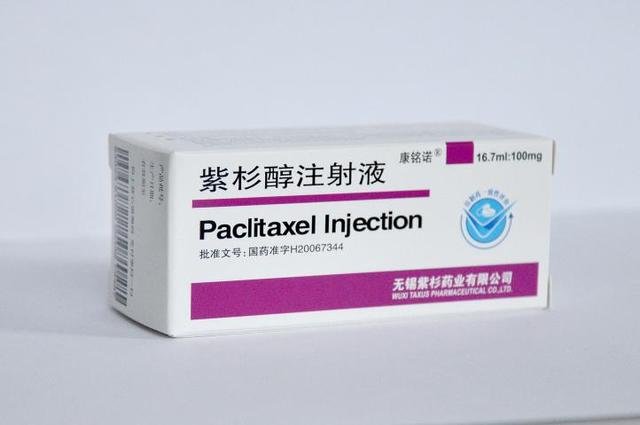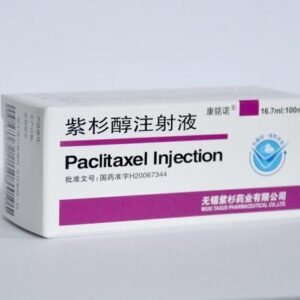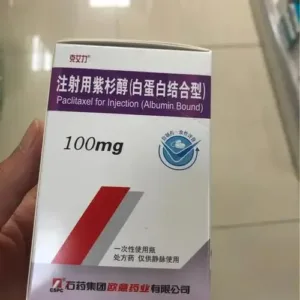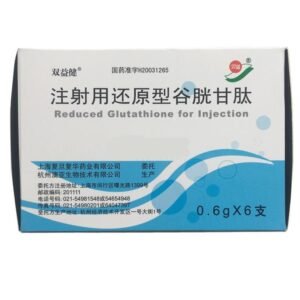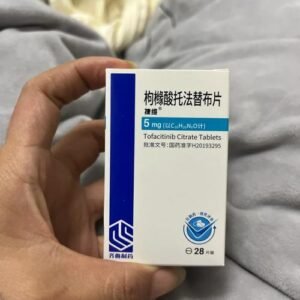Paclitaxel Injection
Effects and efficacy: First-line and follow-up treatment for advanced ovarian cancer. Suitable for the treatment of locally advanced or metastatic non-small cell lung cancer, even after failure of cisplatin-based chemotherapy. Second-line treatment for AIDS-related Kaposi’s sarcoma. Usage and dosage: Preventive medication In order to prevent severe allergic reactions, all patients receiving this product should be given preventive medication in advance, usually 20 mg of dexamethasone is given orally 12 hours and about 6 hours before treatment with this product, or 20 mg of dexamethasone is intravenously dripped about 30-60 minutes before treatment with this product; 50 mg of diphenhydramine (or its equivalent), intravenously or deeply intramuscularly 30-60 minutes before treatment with this product, and intravenously drip cimetidine (300 mg) or ranitidine (50 mg) 30-60 minutes before injection of this product. Patients with ovarian cancer For patients with ovarian cancer who have not been treated, it is recommended to choose the following treatments once every 3 weeks. Before choosing the appropriate treatment, the different toxicities should be considered: 175 mg/m2 IV infusion over 3 hours and 75 mg/m2 of cisplatin; 135 mg/m2 IV infusion over 24 hours and 75 mg/m2 of cisplatin. For patients with ovarian cancer who have received chemotherapy, several doses and schedules are currently available, but the optimal dose schedule is unclear. The recommended treatment regimen is: 135 mg/m2 or 175 mg/m2 IV infusion once every 3 weeks over 3 hours. The adjuvant treatment regimen for patients with lymph node-positive breast cancer is: a dose of 175 mg/m2, IV infusion over 3 hours, once every 3 weeks, for 4 courses, sequentially used after combination chemotherapy containing doxorubicin. Clinical studies used 4 courses of doxorubicin combined with cyclophosphamide chemotherapy. The effective treatment regimen for patients with metastatic disease who have failed initial chemotherapy or who have relapsed within 6 months of adjuvant chemotherapy is: 175 mg/m2, IV infusion over 3 hours, once every 3 weeks. The recommended regimen for patients with non-small cell lung cancer is 175 mg/m2, intravenous drip, drip time greater than 3 hours. Once every 3 weeks. The recommended treatment regimen for AIDS-related Kaposi’s sarcoma is 135 mg/m2, intravenous drip, drip time greater than 3 hours, once every 3 weeks; or 100 mg/m2, intravenous drip, drip time greater than 3 hours (dose intensity 45-50 mg/m2/week), once every 2 weeks. In clinical studies, intravenous administration of 135 mg/m2 once every 3 weeks with a drip time greater than 3 hours was more toxic than the latter. In addition, all patients with poor physical status used the latter regimen (100 mg/m2 intravenously administered every two weeks, drip time greater than 3 hours). Given that all patients with progressive HIV are immunosuppressed, a modified regimen is recommended for these patients to reduce the dose of dexamethasone in the three preventive medications to 10 mg (instead of 20 mg) orally; this product can only be used for the first or second treatment when the neutrophil count is at least 1000/mm; for patients with severe neutropenia (neutrophils less than 500/mm for a week or longer), the dose of paclitaxel should be reduced by 20% in the subsequent treatment.
Use with caution in case of functional impairment
Share:
Products
Our offers
Health Classification
Let us work together to protect precious health

